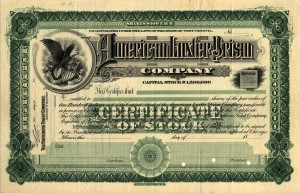 Both companies and employees can benefit from company stock purchases in 401(k) or other qualified retirement plans. But what should an investor do with these shares upon a job transition? You may have heard that you should avoid having too much of one stock in your portfolio, or that it’s beneficial to take advantage of a strong appreciation or low cost basis to lock in gains, or perhaps you’re concerned about future taxes on the potential growth of your company shares. This month I’ll introduce you to the Net Unrealized Appreciation strategy, which can be useful in meeting these objectives.
Both companies and employees can benefit from company stock purchases in 401(k) or other qualified retirement plans. But what should an investor do with these shares upon a job transition? You may have heard that you should avoid having too much of one stock in your portfolio, or that it’s beneficial to take advantage of a strong appreciation or low cost basis to lock in gains, or perhaps you’re concerned about future taxes on the potential growth of your company shares. This month I’ll introduce you to the Net Unrealized Appreciation strategy, which can be useful in meeting these objectives.
In general, when you purchase stock in a taxable brokerage account and hold it for over a year, any appreciation in the stock’s value is taxed at long-term capital gains rates. However, when you purchase and hold your company’s stock in a 401(k) account, this doesn’t apply. While growth is tax-free, your eventual distributions, which include any gains from appreciation in your company stock, are taxed at your income tax rate at the time of distribution. The same holds true if you roll over your holdings into a Rollover IRA account. In other words, your company stock is treated like any other holding in your retirement account: you don’t pay income taxes on contributions, but you do pay income tax on any distributions.
The Net Unrealized Appreciation (NUA) strategy allows investors to pay capital gains tax on appreciation rather than income tax. It involves separating your company stock from the rest of your retirement assets by transferring some or all of the shares to a taxable brokerage account. You pay income tax on the cost per share at the time of this transfer, but when you subsequently sell the shares you would be subject only to capital gains taxes on their appreciation, even if you sell one day after the transfer.
For example, suppose you have shares of company stock in your retirement plan currently valued at $500,000, and you bought these shares for $50,000. If you were to transfer all of your holdings to a taxable brokerage account, you would pay income taxes on the $50,000 purchase price. The remaining $450,000 would be considered net unrealized appreciation, as you have yet to realize the gain through a sale. If you were to sell your holdings, the $450,000 appreciation would be taxed at long-term capital gains rates. On the other hand, if you were to hold onto the shares and they appreciate another $100,000, you would pay long-term capital gains tax rates on the original $450,000 in appreciation and either short- or long-term capital gains rates on the $100,000, depending on how long you hold onto the shares once they’re in your new account.
This strategy is best suited for investors who have a very low cost basis in their company shares or are age 55 and older. Holding onto a portion or all of the shares over a longer period after the transfer is suitable for those investors who believe their company will grow in the long term and are confident that capital gains tax rates will remain lower than income tax rates.
Of course, while this may be a great strategy for some, there are several issues to keep in mind. Most importantly, the appreciation or depreciation of your company shares is uncertain. Secondly, future tax rates on income and capital gains are impossible to predict. Finally, if you are under the age of 55, transferring your company stock to a taxable brokerage account upon leaving your job would also generate a 10 percent penalty on the purchase price of the shares, making this a riskier strategy for younger savers.
While one of my specialties is IRA Rollovers, this is an issue that can become complicated very quickly. As such, I strongly recommend that you speak to a tax advisor about this strategy to ensure that it fits with your overall goals and needs.
Here is more detailed information on Net Unrealized Appreciation .
If you are seeking detailed information about rolling over your 401(k) or about managing your IRA, I highly suggest downloading my free eBook, “10 Tips You Need to Know About Your IRA Rollover”. This short book is packed with critical information that will help you make the right decisions about your retirement savings.
Written by Bradford Pine
Bradford Pine Wealth Group – New York City Financial Advisors
The views and opinions expressed in an article or column are the author’s own and not necessarily those of Cantella & Co., Inc. It was prepared for informational purposes only. It is not an official confirmation of terms. It is based on information generally available to the public from sources believed to be reliable but there is no guarantee that the facts cited in the foregoing material are accurate or complete.
Comments may not be representative of the experience of other investors. Investor comments and experiences are not indicative of future performance or results. Views and opinions expressed in the comments section are the author’s own and not those of Cantella & Co., Inc. No one posting a comment has been compensated for their opinions.



Comments are closed.